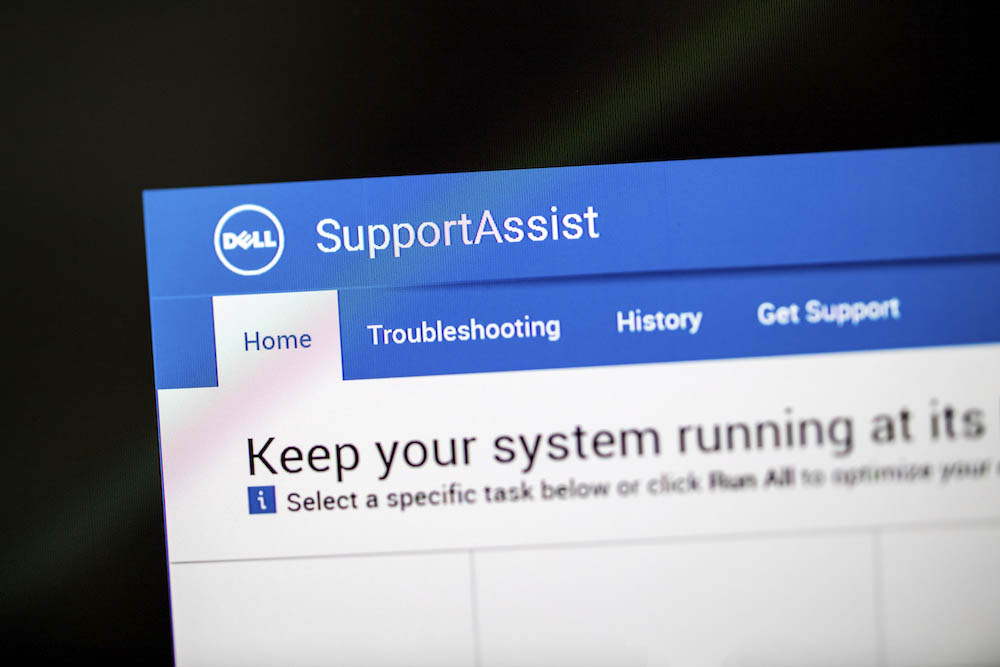Mitigate Dell supportAssist Privilege Escalation vulnerability

In this article I will discuss about how to Mitigate Dell
supportAssist Privilege Escalation vulnerability
In the ever-evolving landscape of cybersecurity, organizations
and individuals must remain vigilant against potential threats that can
compromise the security of their systems. Recently, a Privilege Escalation
Vulnerability (CVE-2023-48670) has been identified in Dell SupportAssist for
Home PCs, emphasizing the importance of proactive measures to secure your Dell
PC. In this blog post, we will guide you through the steps to identify and
address this vulnerability, ensuring the security of your system.
Identifying and Addressing the Vulnerability:
Check Your SupportAssist Installer Version:
The first step in securing your Dell PC is to verify the
version of your SupportAssist installer. If you have SupportAssistinstaller.exe
version prior to 3.14.2.45116, it is crucial to remove the outdated installer
from your download location. This ensures that you are not unintentionally
using a vulnerable version.
Download the Latest Version from Dell’s Website:
Dell has promptly addressed the identified vulnerability with
version 3.14.2.45117. However, some users have reported installation issues,
with version 3.14.2.45116 being installed instead. To avoid this, it is
recommended to check Dell’s official website for the latest
SupportAssistinstaller.exe and ensure that version 3.14.2.45117 is indeed
downloaded and installed on your system.
Temporary Workaround: Uninstalling Dell SupportAssist:
While waiting for a seamless fix from Dell, a viable
workaround is to uninstall Dell SupportAssist using a PowerShell script. The
following PowerShell script facilitates the removal of Dell SupportAssist,
providing an interim solution until an official fix is released.
PowerShell Script to uninstall Dell SupportAssist
# Uninstall Dell SupportAssist
# Check if running with administrator
privileges
if (-not
([Security.Principal.WindowsPrincipal][Security.Principal.WindowsIdentity]::GetCurrent()).IsInRole([Security.Principal.WindowsBuiltInRole]::Administrator))
{
Write-Host “Please run the script as
an administrator.”
Exit
}
# Define the program name
$programName = “Dell
SupportAssist”
# Try to uninstall the
program
$uninstallResult =
Get-WmiObject -Query “SELECT * FROM Win32_Product WHERE Name =
‘$programName'” | ForEach-Object { $_.Uninstall() }
# Check the result
if
($uninstallResult.ReturnValue -eq 0) {
Write-Host “$programName has been
successfully uninstalled.”
} else {
Write-Host “Failed to uninstall
$programName. Return Code: $($uninstallResult.ReturnValue)”
}
Conclusion:
In conclusion, safeguarding your Dell PC against the identified SupportAssist Privilege Escalation Vulnerability requires a proactive and comprehensive approach. Regularly updating your software and promptly addressing security advisories is essential to maintaining a secure computing environment. By following the outlined steps and utilizing the provided PowerShell script, you can fortify your system and mitigate the potential risks associated with this vulnerability.
Remember, cybersecurity is an ongoing process, and staying informed is key to cyber resilience. As threats continue to evolve, it is imperative to adapt and implement robust security practices. By taking these steps, you empower yourself against potential threats in the digital realm, ensuring the safety and security of your computing environment. Stay informed, stay secure, and fortify your defense against emerging cybersecurity challenges.
Related posts:
- Automating Python Uninstallation with PowerShell
- Internet Shortcut Files Security Feature Bypass Vulnerability
- ConnectWise Sounds the Alarm on Critical RCE Vulnerability in ScreenConnect
- How to Fix Weak SSL/TLS Key Exchange vulnerability (Diffie-Hellman)
- Microsoft MSHTML Remote Code Execution Vulnerability
- [Solved] The Remote Desktop Services Vulnerability CVE-2019-0708
- [Solved] LSASS Credential Dumping and the ZeroLogon Vulnerability (CVE-2020-1472)
- [Solved] CVE-2024-50603 Aviatrix Controllers OS Command Injection Vulnerability
- [Solved] CVE-2025-21311 The Windows NTLMv1 Elevation of Privilege Vulnerability
- [Solved] CVE-2018-8639 Microsoft Windows Win32k Improper Resource Shutdown or Release Vulnerability

nice post
Thank
I like this site it’s a master piece! Glad I found this
ohttps://69v.topn google.Blog monetyze